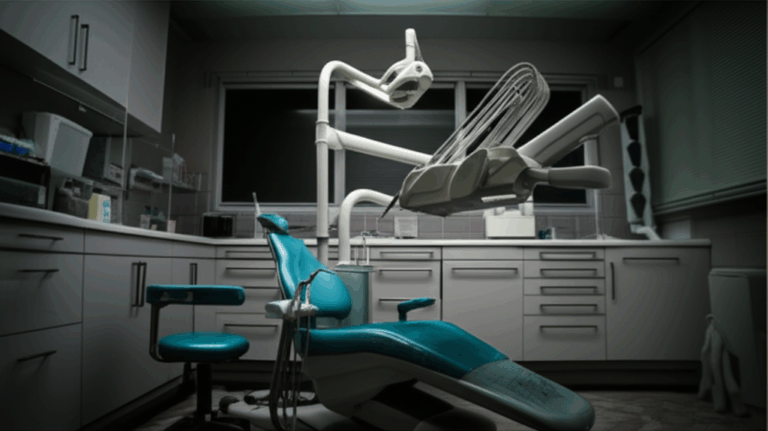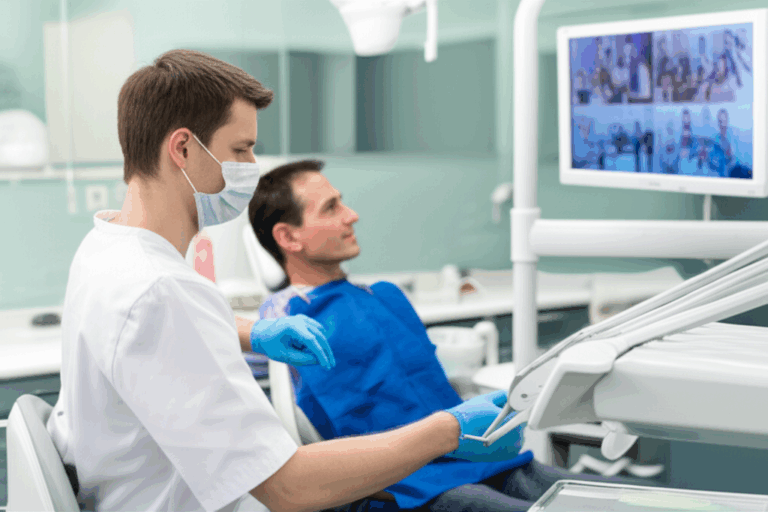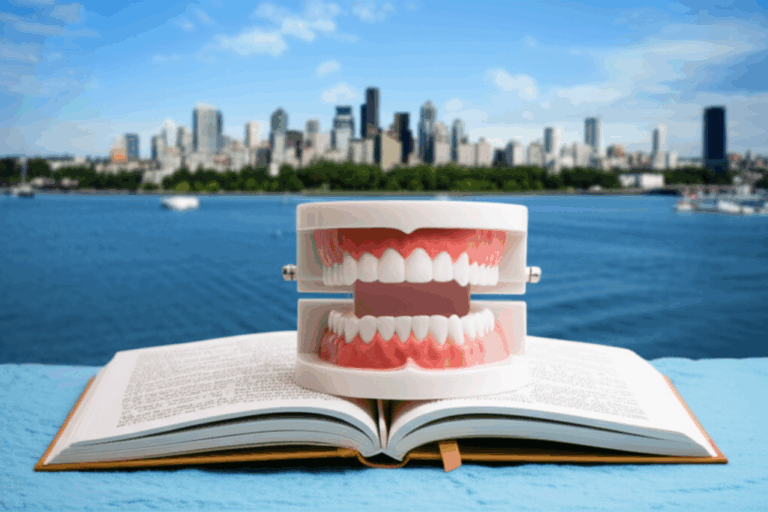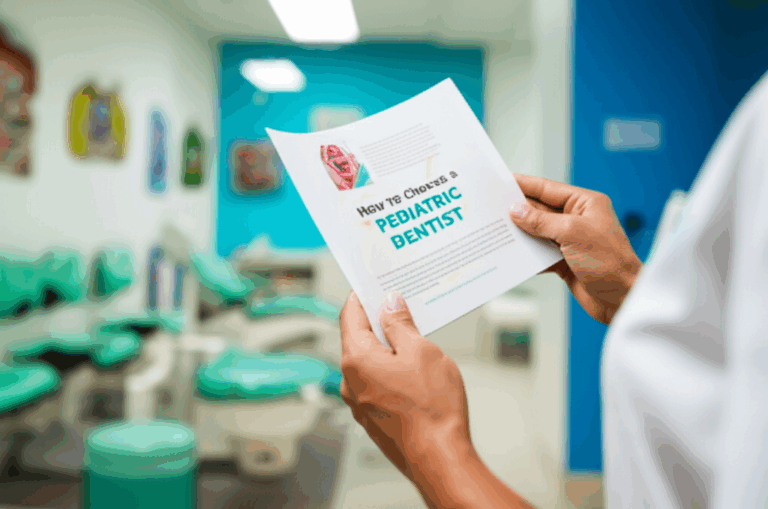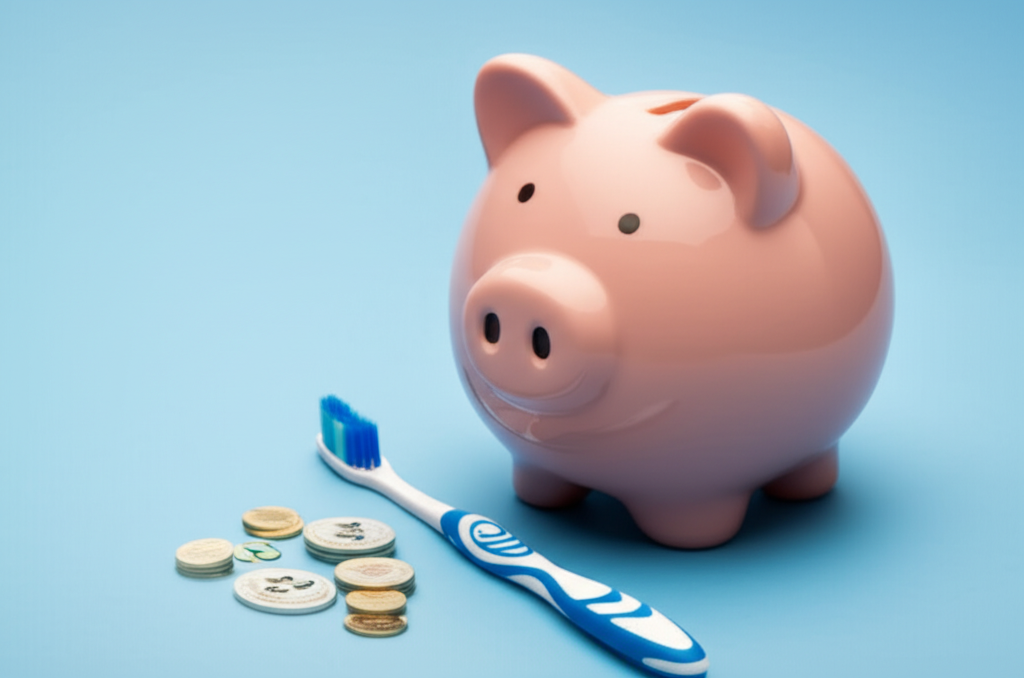
How to Go to the Dentist Without Dental Insurance: Your Complete Guide to Affordable Dental Care
That pain in your jaw or the constant ache of a tooth—it’s hard to ignore. For lots of people, needing to see a dentist brings up the big question: “Can I even pay for this if I don’t have insurance?” If you’re looking for help, worried about how much it costs, or just want to know your choices, take a breath. You’re in the right place, and you aren’t alone.
About 30% of adults in the US don’t have dental insurance. That means millions of people are in the same boat as you, and many have found ways to get dental care without spending too much. So, let’s clear things up and go over your choices, one step at a time. I want to give you the facts, clear up any confusion, and help you feel ready to see a dentist.
In This Article:
- Navigating Dental Care Without Insurance: The Realities and Hope
- Quick-Relief Options: Where to Go for Emergency or Urgent Dental Care
- Long-Term Solutions: Making Preventative and Routine Care Affordable
- Payment and Financing: Simple Ways to Handle Dental Costs
- Smarter Strategies: How to Save, Stay Healthy, and Buy Dental Care
- Bottom Line Takeaways: Your Action Plan to Keep Your Smile
Navigating Dental Care Without Insurance: The Realities and Hope
If you don’t have dental insurance, you’re probably used to seeing big prices for even easy treatments. It can cost $150 for a filling, $450 to take out a tooth, or up to $2,000 for a root canal—and that’s just a few things. For lots of people, this means skipping checkups and hoping the problem goes away.
But the truth is, skipping the dentist doesn’t make the problem go away. It often means higher bills and more pain later. Bad dental health can also cause other big health problems, like heart disease or trouble managing diabetes.
So what can you do if insurance just isn’t going to happen? You can look into some other ways to get care for less money. Let’s start with what to do if you can’t wait.
Quick-Relief Options: Where to Go for Emergency or Urgent Dental Care
When Is It a True Dental Emergency?
Imagine this: You wake up with really bad tooth pain or swelling. Maybe you break a tooth playing basketball, or your child falls and cracks a tooth. Some dental problems just can’t wait. Here’s when you should get help, insurance or not:
- Bad, ongoing pain
- Heavy bleeding from the mouth
- A broken or knocked-out adult tooth
- Big swelling in your gums, face, or jaw
- Signs of infection like fever and pus
Don’t try to handle these alone. Waiting can turn a fixable problem into a very serious one.
Where to Go for Help:
Emergency Dental Clinics:
Most cities have dentists that see emergencies, even for people without insurance. They might charge a set fee to look at you and will tell you the price before doing anything else.
Hospital Emergency Rooms:
Go here if it’s late, you can’t stop bleeding, or you have swelling that makes it hard to breathe. Most ERs only give short-term help (like painkillers or antibiotics); they don’t fill cavities or pull teeth.
Community Health Centers (CHCs) & Federally Qualified Health Centers (FQHCs):
These clinics help people who can’t pay full price. The cost depends on what you can afford. Look one up using HRSA’s search tool or by asking your local health department.
Mobile Dental Clinics:
In some places, these clinics travel around poor neighborhoods and might offer emergency dental help for free or for a low price.
Pro Tip:
Even if you can’t pay everything right away, always ask if they have payment plans. A lot of dentists are more willing to work with you than you might expect.
Long-Term Solutions: Making Preventative and Routine Care Affordable
You might need quick help now, but the real way to save money is to stop problems before they start. Let’s look at your best options for getting regular, cheap care.
1. Dental Schools and University Clinics
Ever wonder how future dentists practice? Most dental schools have their own clinics. Here’s why you might want to try them:
- Lower Costs: Students, who are watched closely by teachers, can do cleanings, fillings, and sometimes dentures for 30-50% less than private dentists.
- Full Care: Sometimes, the care is more careful because students are being graded.
- Longer Visits: Appointments take longer. You might wait longer for care, especially for emergencies.
How to Find a Dental School Clinic:
Check the American Dental Association website for a list of schools near you.
2. Public Health Programs: Medicaid, CHIP, and More
Medicaid:
If you have very low income, you might get state Medicaid. Every state is different, but many help with children’s dental care and, more and more often, adults too.
CHIP (Children’s Health Insurance Program):
Children in families without much money can get dental care through CHIP, often for free or very low cost.
Veterans’ Benefits:
If you’re a veteran, you might get dental care through the VA, especially if your problems are linked to your service.
State Help Programs:
Many states have dental grants, free dental days, or clinics for seniors, jobless people, or people with special health problems.
3. Discount Dental Plans and Savings
If regular insurance isn’t an option, discount dental plans are a good choice. Here’s what to know:
- How They Work: You pay once a year (about $100–$200). You get a list of dentists who give you treatments for 10–60% off.
- Quick Savings: There are no wait times, and you don’t pay a deductible.
- What’s Different: These plans don’t pay for your care—they just make the price lower.
- Picking a Plan: Make sure the dentists near you are included and the plan covers what you need.
4. Charities and Non-Profits: Free or Discounted Care
Groups big and small help people get dental care when they can’t pay. Examples include:
- Give Kids A Smile (for children)
- Donated Dental Services (seniors, people with disabilities, or health problems)
- Local health departments or non-profit clinics might have free dental days or give out coupons for care.
How to Apply:
You’ll usually need to meet special rules (low income, age, or health issues) and apply early. These programs are busy, so plan ahead if you can.
5. Hospital Dental Departments or Special Community Programs
Some hospitals have a dental office that takes patients without insurance, especially if it’s urgent. Sometimes, local groups work with dentists for free or cheap care on certain days—watch for announcements at community bulletin boards or local agencies.
Payment and Financing: Simple Ways to Handle Dental Costs
You’ve found a dentist, but the price is still too high. What now? Let’s talk about more ways to make it easier to pay.
Direct Payment Plans with Dentists
A lot of dentists don’t say it up front, but they might let you pay your bill a little at a time. Tips to make it work:
- Ask if you get a discount for paying in cash or paying all at once.
- Ask if you can pay off the bill over a few months.
- Don’t be afraid to ask. The worst is hearing “no”—but most want to help you get treated.
Medical Credit Cards (Like CareCredit)
These cards let you pay for medical or dental costs, sometimes with no interest if you pay it off soon.
- Watch Out: If you don’t pay it on time, the interest can be very high and go back to the start of your bill.
- Be Careful: This can be good for big, sudden problems—just make sure you’ll be able to pay it off before interest kicks in.
Dental Grants & Help
Some charities and cities give out dental grants for things like fixing teeth or getting dentures, especially for people with special needs, older adults, or patients who’ve beaten cancer.
- Tip: Grants may not pay the whole bill, but every bit helps. Apply early and make sure your application is complete.
Shop for Services: Compare, Bargain, and Save
Dental prices are not always the same. Call around, ask for quotes at different clinics, and always ask if there’s a lower price for paying cash, package deals, or secret discounts.
You can search for special labs, like a dental ceramics lab or a crown and bridge lab, to see what materials cost if you need complicated work done.
Smarter Strategies: How to Save, Stay Healthy, and Buy Dental Care
Let’s be honest: The cheapest cavity is one you never get. Acting early is a big money saver, so let’s talk about keeping your teeth healthy and your costs low.
A. Take Care of Your Teeth at Home
- Brush Two Times a Day: Use toothpaste with fluoride and a soft brush. Brush gently—small circles are best.
- Floss Every Day: It’s not just for show. Floss cleans where your brush can’t reach.
- Rinse with Mouthwash: Pick one with fluoride to help protect your teeth.
- Eat Healthy: Sugar feeds germs that make cavities. Eat more veggies and stay away from soda and sticky candy.
Think of your teeth like a car—simple upkeep stops big repairs.
B. Get Preventative Checkups (Even If Cheap)
It might seem strange to pay money when you’re not in pain, but missing cleanings and checkups usually leads to bigger bills later.
- Cheap Cleanings: Try community clinics or dental schools; some cleanings cost just $30–$60.
- Find Problems Early: A small cavity found at checkup is much cheaper to fix than a root canal months later.
C. Compare Prices and Ask for Lower Costs
Don’t just accept the first price they tell you! Prices for things like fillings or crowns change from one place to another. Call around, and ask for:
- Written treatment plans that show every cost
- The cheapest prices for paying in cash
- The chance to spread treatment out over more than one visit
D. Think About Dental Tourism for Big Work (Be Careful!)
If you need crowns, implants, or dentures and can’t pay for them locally, some people travel overseas for care.
- How It Works: You leave the country for cheaper dental work.
- Popular Countries: Mexico, Costa Rica, Thailand, and Hungary have good clinics.
- Risks: Double-check reviews, licenses, and how clean the clinic is.
- Trip Costs: Count in your ticket, stay, and what you’d do if something goes wrong when you come back.
E. Keep Informed: Online Visits and Second Opinions
Some dentists now do video visits to talk through your choices. This lets you decide what you really need and what can wait before you book a treatment.
Bottom Line Takeaways: Your Action Plan to Keep Your Smile
Let’s wrap it up. Here’s what really matters for getting dental care without insurance:
Key Points:
- You have options: Community clinics, dental schools, and charities can really help—don’t think you can’t get care.
- Emergency? Don’t wait. Hospitals and emergency dentists can stop things from getting worse.
- Prevention saves money. Keep up with brushing, flossing, affordable checkups, and eating right.
- Compare and ask for lower prices. Every dentist is different—a quick call can get you discounts or flexible payments.
- Check out alternatives like discount plans, medical credit cards, or grants—sometimes, a little paperwork can really help.
Your Next Step:
Start by writing down your most urgent dental problem. Use this guide to pick the best help for you—a nearby clinic, a dental school, or even just calling around to ask about payment plans. If you still aren’t sure where to start, check the American Dental Association or your local health department for advice.
And for more helpful tips, see this dental practical guide—it’s full of advice for every dental step.
Frequently Asked Questions About Dental Care Without Insurance
1. Will I really be turned away if I can’t pay right away?
Many clinics try to help people who don’t have insurance or can’t pay much. Always ask. Most community clinics treat emergencies, especially for kids, even if you can’t pay up front.
2. Are dental school clinics just as good as private ones?
Supervised students sometimes take more time and use the newest methods. For hard cases, an experienced dentist might be better, but for things like cleanings or fillings, they’re a great option.
3. How do I know if a discount dental plan is safe?
Pick a plan recommended by trusted groups or the national dental association. Don’t sign up for any plan asking for big money before you even see a dentist.
4. Is home dental care enough if I can’t afford a dentist?
Good home care helps, but don’t try to fix real pain or infections yourself. If you really can’t pay, put visiting a clinic first if you have swelling, a fever, or can’t sleep from tooth pain.
For Extra Support
Still unsure? Remember, you don’t have to figure it out alone. Lots of dentists really want to help you get the care you need, and new support is showing up every year. Reading more patient dental resources can help you feel more ready to act.
Or, if your dentist talks about special repairs, ask them about places like a crown and bridge lab—sometimes learning where your dental work gets made can help you see what’s really needed and what’s not.
Your Smile, Your Health—Your Power
Going to the dentist without insurance isn’t always easy, but it’s possible. With the right info, a “can-do” attitude, and a bit of effort, you can take care of your smile and your wallet. Make that first move. Book that call, shop around, or just start flossing every day. Small steps add up over time.
Don’t let your insurance card decide how you care for yourself. Your smile is worth it.

